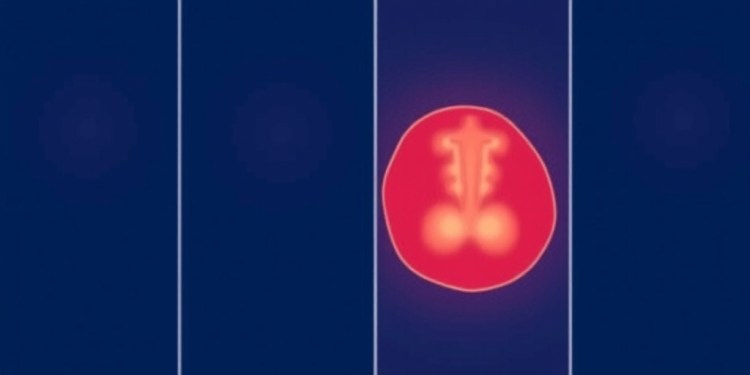On March 27, 2025, a critical study published in the April issue of “Plastic and Reconstructive Surgery” sheds light on the long-term implications of breast-conserving therapy (BCT) coupled with radiation therapy (RT) for women diagnosed with early-stage breast cancer. The study presents alarming findings indicating that these women may experience significant reductions in breast size over time, a reality that underscores the need for comprehensive patient education and surgical planning.
The investigation, led by Dr. Chris Reid and his team from the University of California San Diego, involved thorough evaluation and measurement of breast volume changes in 113 female patients who underwent BCT/RT between 2005 and 2023. This research marks a pivotal contribution to the understanding of radiation effects on breast tissue, as prior studies had provided only limited data on this phenomenon. By utilizing mammograms taken before treatment and at intervals extending up to five years post-treatment, the researchers analyzed both immediate and long-term impacts of the interventions on breast volume.
Findings from this research are stark, with an average breast volume decrease of 9.2% immediately following lumpectomy. This initial reduction was further compounded by the subsequent effects of radiation therapy, prompting additional volume loss. Remarkably, after just one year, the cumulative reduction was noted to be approximately 19.3%, not including the tissue excised during surgical intervention. This progressive loss of volume continued across the five-year timeframe of the study, leading to an overall average reduction of 26.6%.
The implications of this research extend beyond mere statistics. For many women, BCT is the preferred option because of its equivalently favorable survival outcomes compared to traditional mastectomy, combined with enhanced physical and psychological quality of life indicators. However, the adverse effects of radiation, such as tissue atrophy and fibrosis, present a significant counterargument, as these alterations to breast morphology can have profound effects on a woman’s body image and overall satisfaction with post-treatment outcomes.
In the quest to delineate the factors contributing to breast volume loss post-BCT, the study also explored additional risk factors. Notably, it was observed that women with larger breast sizes experienced more substantial shrinkage, especially if the tumor volume was less than 10% of the overall breast volume. The reduction for these individuals averaged 29.5%, whereas those with smaller breasts showed a lower average decrease of 21.7%. Other determinants of greater breast volume loss included the presence of diabetes, smoking history, and the administration of cytotoxic chemotherapy alongside radiation.
This newly acquired data lays a foundation for critical discussions surrounding patient expectations and surgical planning. It emphasizes the need for transparency regarding the likelihood of significant changes in breast size over time due to radiation therapy. As medical professionals place increasing importance on patient satisfaction as a metric of treatment success, outcomes related to long-term changes in breast volume must be strategically integrated into the physician-patient dialogue.
Furthermore, the research provides essential insights into breast asymmetry, a prevalent concern among women post-BCT. As patients may experience varying degrees of volume loss, anticipating these changes is fundamental for healthcare providers aiming to assist in reconstructive planning that seeks to achieve symmetrical results post-treatment. The authors have identified significant gaps in the current literature, advocating for continued research into how differing treatment modalities can impact breast volume changes and highlighting the necessity for novel, objective techniques to measure these alterations consistently.
In conclusion, this study not only unveils the stark realities of breast volume loss associated with BCT and RT but also emphasizes the pressing need for enhanced patient education and treatment planning. Understanding these changes can empower women with breast cancer to make well-informed decisions about their treatment options and engage in realistic conversations with their healthcare providers. Moreover, this research could potentially change how breast health professionals approach the planning of reconstructive surgeries in an effort to optimize aesthetic outcomes post-cancer treatment.
Subject of Research: Effects of Radiation Therapy on Breast Volume after Breast-Conserving Therapy
Article Title: A Quantitative Evaluation of the Effects of Radiation Therapy on the Post-Surgical Breast
News Publication Date: March 27, 2025
Web References: Plastic and Reconstructive Surgery
References: Read Article
Image Credits: Not available
Keywords: Breast cancer, Breast-conserving therapy, Radiation therapy, Breast volume loss, Patient expectations, Surgical planning, Oncological outcomes, Reconstructive surgery.
Tags: breast size reduction after radiation therapybreast volume changes in cancer patientsbreast-conserving therapy implicationscomprehensive care for breast cancer patientsDr. Chris Reid research studyearly-stage breast cancer treatment outcomeslong-term effects of breast cancer treatmentmammogram analysis in breast cancerpatient education on breast cancer treatmentsPlastic and Reconstructive Surgery journal findingsradiation therapy effects on breast tissuesurgical planning for breast cancer therapy





